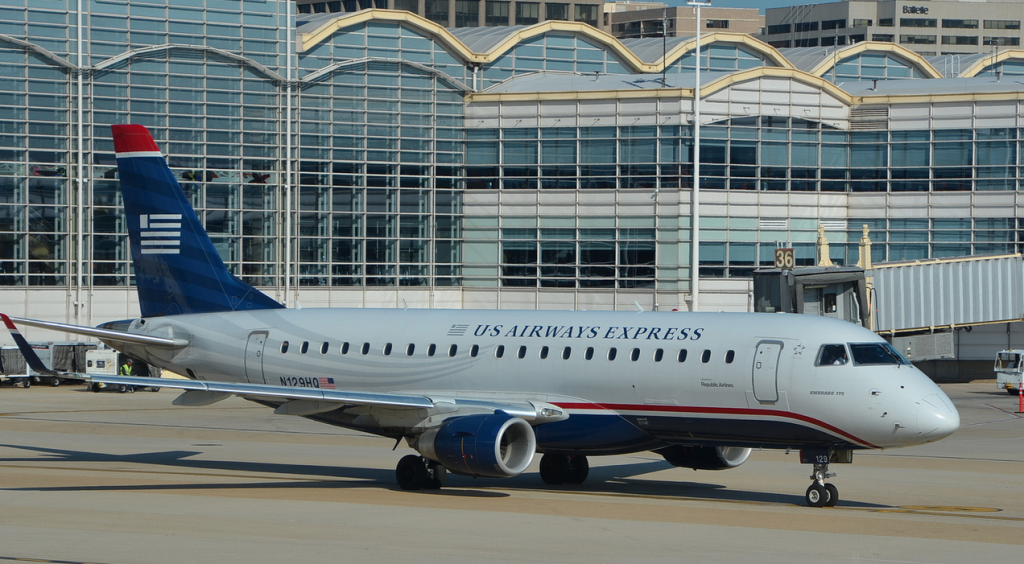Impact Of US Airways/American Airlines Merger Will Depend On Who Gets Leftovers From Wedding

Airlines big and small will be fighting over who gets to bid on US Airways and American Airlines gates and takeoff/landing slots at Reagan National and other airports (afagen)
The CEO of FareCompare.com tells Reuters that it’s inevitable that this further consolidation of the airline industry will result in higher ticket prices.
“In the past decade, we’ve seen the industry transformed from one that boasted eight large airlines to a mere four. With the latest merger, it drops to three,” he explains (though we’d argue there will be four: United, Delta, US Airways/American, and Southwest). “It is likely we’ll be sitting around in 2020 saying, ‘I wish we still had eight carriers.'”
Regardless of whether you count three or four remaining majors, the fact is that there will be fewer of them when the merger is complete. This means less competition when it comes to setting the bar for airfares.
“In all the trenches there is one less competitor. Therefore, the remaining firms have more pricing power,” explains George Hoffer, a transportation economist at the University of Richmond, to Reuters.
Others contend that the expected exclusion of the other majors from bidding on the divested takeoff and landing slots — including 104 slots at Reagan National outside of D.C., and 34 slots at LaGuardia International in NYC — will help in the long run to eventually turn mid-size players into genuine competitors.
“The leg up that the government has given some of the low cost carriers, I think, is going to have a very positive impact on the industry,” says Herbert Hovenkamp, who teaches antitrust law at the University of Iowa College of Law.
“These are significant concessions that could provide a real shot in the arm to low cost carrier airlines. That competition could help lower prices for consumers in those markets,” explains William J. McGee, travel and aviation consultant for Consumers Union. “But we’re still very concerned about a marketplace dominated by larger airlines that are essentially ‘too big too fail.’ The merger could still leave smaller markets underserved with fewer choices for flights.”
While it’s expected that United and Delta would be barred from bidding, it remains to be seen if Southwest will be included. The airline is often thought of as a low-cost cousin to the majors, but it actually handles as many, if not more, passengers than the blue-chip majors. One could argue that it would be in everyone’s best interest to include Southwest in the bidding, as it would allow the airline to continue competing with United and Delta. That said, Southwest just went through a sizable expansion of its own with the acquisition of AirTran, and perhaps should be excluded.
For its part, Delta has publicly stated that it wants to be involved in the bidding process. Specifically, it wants some of the gates at Dallas Love Field and Reagan National.
Hopefully, the Justice Dept. sticks to its guns and blocks at least United and Delta from being involved in the auction process, as allowing these legacy carriers to gobble up more slots would only maintain the status quo and do nothing to even out the loss of competition from the US Airways and American merger.
Want more consumer news? Visit our parent organization, Consumer Reports, for the latest on scams, recalls, and other consumer issues.

